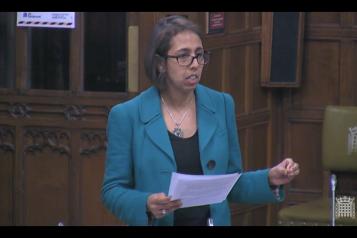Parliamentary Health & Social Care Committee Inquiry into NHS Dentistry
Since the campaign started, we have published a report, provided evidence to Healthwatch England, met several times with senior people at NHS England and the Department of Health, briefed our MPs who have asked questions in Parliament and supported over 300 local residents to access NHS care.
We were therefore delighted when the Parliamentary Health & Social Care Committee opened its Inquiry into NHS Dentistry on 8th December 2022 with a call for evidence. The deadline for submitting evidence to the inquiry was 25th January and publication of the submissions began on 7th March. You can find the submissions to the Inquiry here.
At the time of writing, the process of publication is still ongoing, but it is already clear that there is a huge weight of evidence from across the country that supports our concerns. There are submissions from major public bodies including NHS England, the CQC and the Parliamentary and Health Service Ombudsman, from members of the public and from more than 30 Local Healthwatch - including ourselves.
In Richmond, our work, along with Munira Wilson MP and Sarah Olney MP’s questions in the House have made a significant contribution to stimulating this national debate.
We’ve had hundreds of pieces of written evidence from trade bodies, professionals, charities, people working in the profession. But quite a lot of it has been from local Healthwatch and from patients themselves, telling some pretty painful stories of…DIY dentistry...home tooth extractions, people tying shoelaces to teeth...
Improvements in Access to NHS Dentistry
We’re also delighted to see that, even before the Inquiry sits for the first time, 2 of the “Next Steps” that we have called for have already been taken. It is a shame that these were not taken 2 years ago, but it is excellent to see that NHS England have taken steps to:
- Improve the functionality of the NHS.uk website to enable people to search for NHS dentists offering appointments to their category of patient (i.e. Accepting new adult NHS patients, Accepting new adult patients entitled to free NHS dental care, Accepting children as new NHS patients, Urgent NHS dental appointments).
- Enforce the requirement for dentists with NHS contracts to keep the NHS updated on whether or not they are taking on NHS patients
Because of these changes, you can now find a dentist that can offer you an appointment by entering your postcode and then filtering the results. There are still major challenges with capacity, and you may have to travel further than before, but people can now have a realistic chance of accessing an NHS dentist when they need it. This should greatly reduce suffering that led many people to face unaffordable private bills or even resort to DIY dentistry.
The scale of the crisis
Our submission argued that
“… [there] is compelling evidence that there is considerable unmet need within NHS Dentistry. It is likely that this will create demand beyond that which existed before the pandemic. Any solution therefore needs to recognise and articulate both the extent of the unmet need that built up from 2020 to date, and set out the plan for how to recover from this.”
We estimated this backlog as being 70.4 million units of dental activity based on figures in the public domain, which were not ideal.
NHS England’s submission (page 8), includes previously unpublished data, for what we believe is the first time, that shows the true scale of the crisis in NHS Dentistry. The backlog of unmet demand that built up over the pandemic is an astonishing 93.5 million units of dental activity, almost 110% a full year of dental activity.
Whilst we are pleased to see that NHS England has chosen to publish these figures, they beg the question, what is being done to close this gap? NHS England’s submission does set out some proposals (page 3), some of which we have called for, but these do not appear to be sufficient to recover from a crisis of this scale.
Changing responsibilities
From April 2023, responsibility for resolving the crisis is transferring from NHS England to Integrated Care Boards, the new NHS bodies. This crisis is ongoing and it is not of their making. There appears to be no plan to recover from the vast backlog of care and it is unclear how ICBs will be able to resolve their portion of the backlog. Ultimately it is this growing backlog which is causing the crisis.
Whilst we recognise the opportunities that come from integrating dentistry into local NHS services, they are reliant on having a functioning service in the first place. It is unclear how ICBs are expected to address the challenges within NHS Dentistry and find sufficient capacity to exploit these opportunities. We hope that this is something that the Inquiry will be able to offer some insight into.
In his interview, the Chair of the Health and Social Care Committee, Steve Brine MP, appeared to share our concerns.
"I think the central point is, what does the government want from NHS dentistry? Is it the Blair vision that everyone will have access to an NHS dentist or is this just something that the NHS can’t do, can’t afford to do, doesn’t have the staff to do and therefore has to cut its cloth accordingly? If it is that vision of everyone having access to an NHS dentist, then ministers need to move fast and have big ambition matched with big action as to how they’re going to get there. Because right now, I’m not sure what the ambition is and I’m certainly not sure how they’re going to get there."

